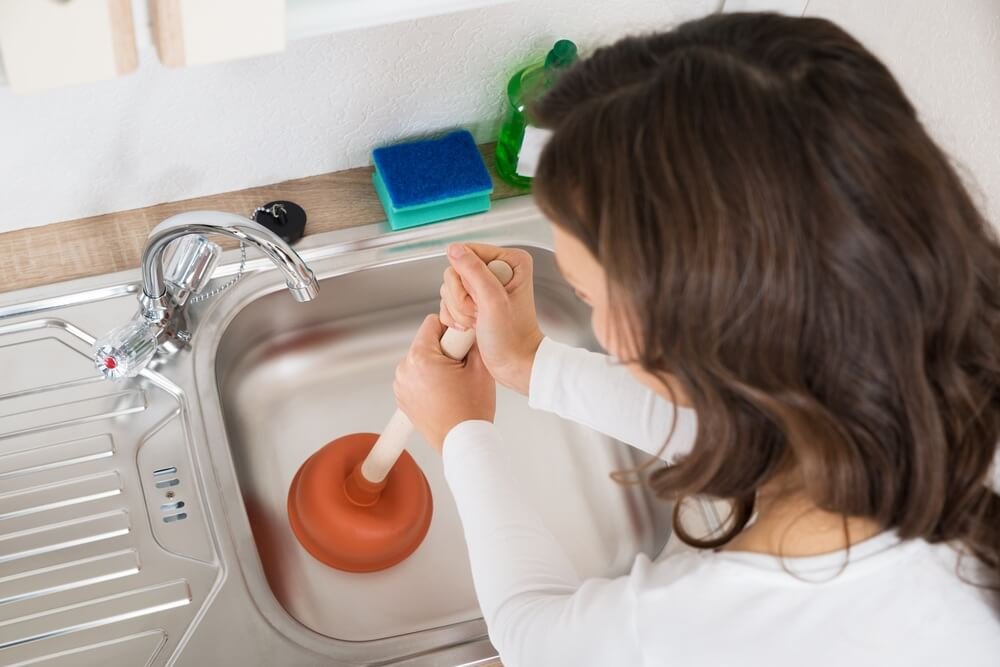Blocked drains can be a major inconvenience and sometimes even pose a health hazard. There can be several contributing factor for the blocked drains, such as the build-up of grease, hair, or foreign objects, and can lead to unpleasant odours, slow-draining sinks and toilets, and even flooding. Understanding the issue and taking the necessary steps to address it can help to keep your property safe, clean, and functioning properly.
What Are The Possible Reasons For The Blocked Drain?

Some of the possible causes of blocked drains are:
- Hair: Hair can easily accumulate in drains, especially in bathroom sinks and shower drains, causing blockages.
- Grease: Cooking grease and oil can solidify and accumulate in drains, creating blockages.
- Soap scum: Build-up of soap scum can cause blockages in shower and bathtub drains.
- Foreign objects: small objects like toys, jewellery, or even food particles can become lodged in drains, causing blockages.
- Tree roots: Tree roots can infiltrate and damage underground drain pipes, leading to blockages.
- Flushing inappropriate items: Flushing non-biodegradable items such as wipes, sanitary napkins, and paper towels can cause blockages in the sewer line.
- Sediment build-up: Over time, sediment can accumulate in drains and pipes, causing blockages.
What Are The Common Problems Caused By Blocked Drains?
Blocked drains can cause a variety of problems, including:
- Slow or clogged drains: Water may not flow freely through the drain, leading to slow draining or complete clogs.
- Overflowing sinks and toilets: If a drain is completely blocked, water may overflow from the sink or toilet, potentially causing water damage.
- Bad odours: Blocked drains can lead to stagnant water and sewage build-up, which can produce unpleasant odours.
- Drain flies and pests: Blocked drains can provide a breeding ground for flies and other pests.
- Flooding: If the blockage is not addressed promptly, it can cause water to back up and flood the area.
- Unhygienic conditions: Blocked drains can cause unsanitary conditions, as the accumulation of waste and water can lead to mould and bacteria growth.
- Property damage: If left unaddressed, blocked drains can cause damage to your property, such as water damage to walls or floors.
How Can Plumbing Services Help With Blocked Drains?
Plumbing service providers use various methods to clear blocked drains, depending on the cause and severity of the blockage.
Plunger: One common method is the use of a plunger. A plunger is a simple tool that creates suction to dislodge blockages in the drain. This method is effective for small blockages caused by hair, food scraps, and other debris.
Drain snake: Another method used by plumbers is a drain snake, also known as an auger. A drain snake is a long, flexible cable with a sharp auger. The plumber inserts the auger into the drain and turns it to break up and remove blockages. This method is often used for blockages located deep in the drain or blockages that a plunger cannot remove.
Hydro jet: They may also use hydro jetting, a method that uses high-pressure water to blast through blockages and clean the inside of the drain pipes. This technique is especially useful for eliminating substantial blockages such as tree roots and other types of fibrous growths.
Camera: If the clog results from a broken or collapsed pipe, the plumber may use a camera examination to determine the source of the issue, after which he may either repair or replace the pipe.
What Are The Benefits Of Clearing Blocked Drains?

Clearing a blocked drain can have several benefits, including:
- Improving the overall efficiency of your plumbing system
- Preventing water damage or flooding in your home
- Eliminating unpleasant odours
- Reducing the risk of health hazards caused by standing water or backed-up sewage
- Saving money on costly repairs or replacements in the long run.
Conclusion
Proper maintenance of drains can help prevent recurring blockage issues. This can include regularly cleaning out debris, such as leaves or hair, from the drain, using a plunger to remove blockages, and ensuring that only appropriate materials are disposed of in the drain (for example, not flushing non-biodegradable materials like wipes or sanitary products). Additionally, regular inspections can help identify and address potential issues before they become serious problems.



